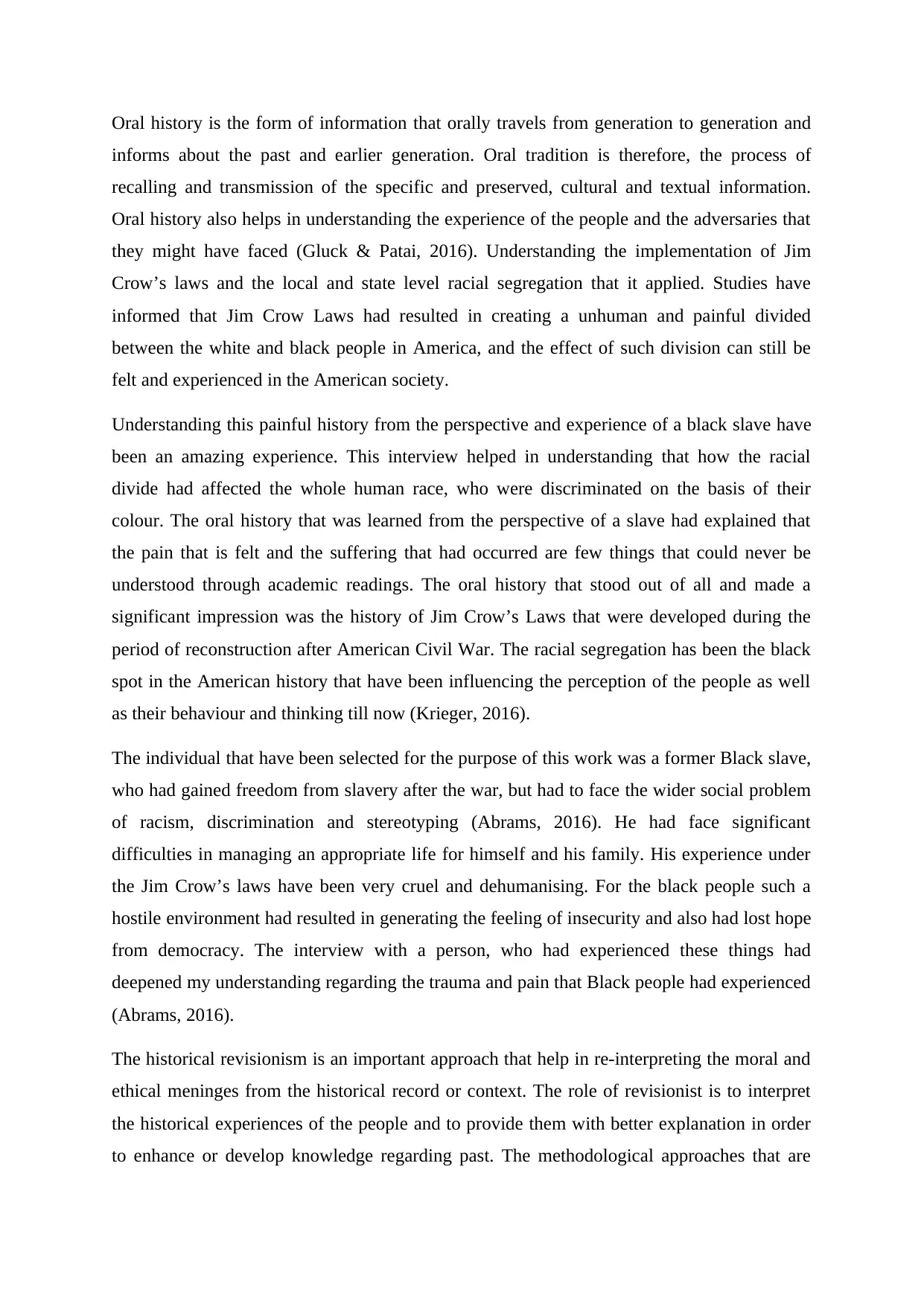Oral History Report: Analyzing the Impact of Jim Crow Laws and Racism
VerifiedAdded on 2022/12/28
|4
|650
|1
Report
AI Summary
This report provides an analysis of oral history, focusing on the impact of Jim Crow laws and racial segregation in America. It examines the experiences of a former Black slave, highlighting the dehumanizing effects of racism and discrimination. The report emphasizes the importance of oral history in understanding the lived experiences of individuals, particularly in the context of historical events. It explores the role of historical revisionism and the methodological approaches used in analyzing oral history data, including qualitative and interpretivist data analysis. The report references key academic sources and underscores the significance of understanding the past to address contemporary issues related to racial inequality and social justice. It also sheds light on the importance of understanding the trauma and pain that Black people had experienced under the Jim Crow laws.
1 out of 4











![[object Object]](/_next/static/media/star-bottom.7253800d.svg)